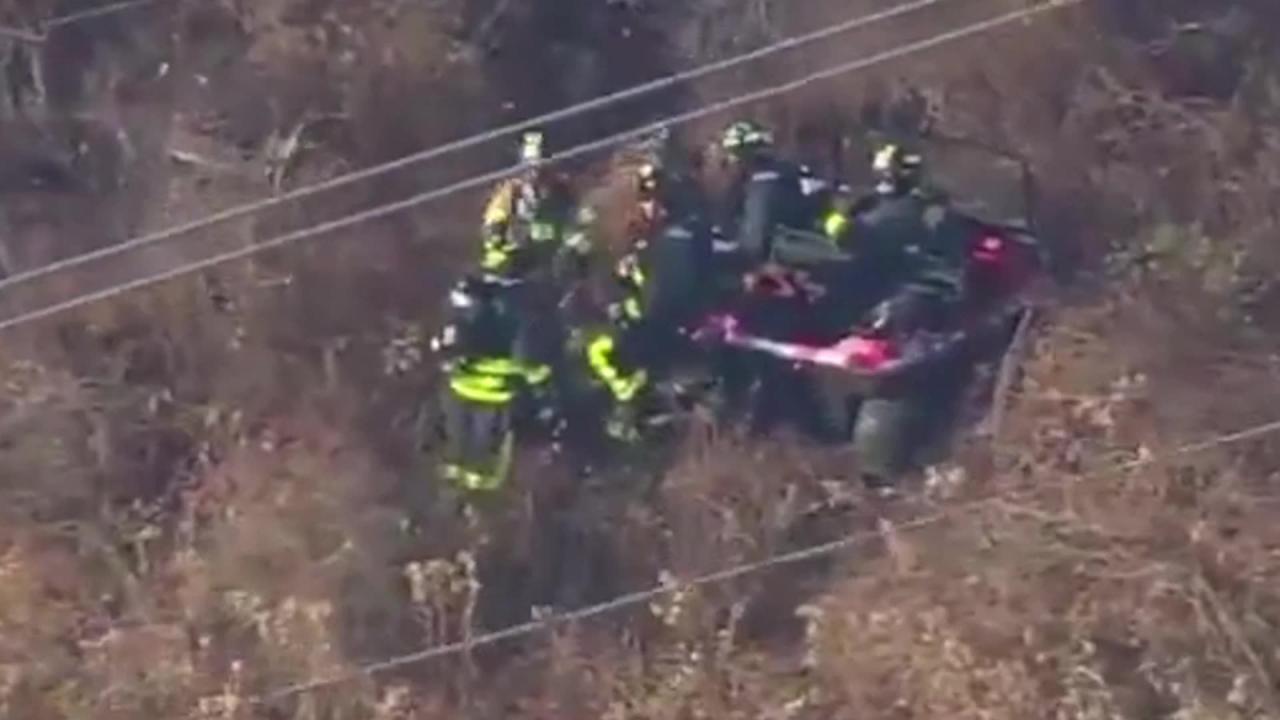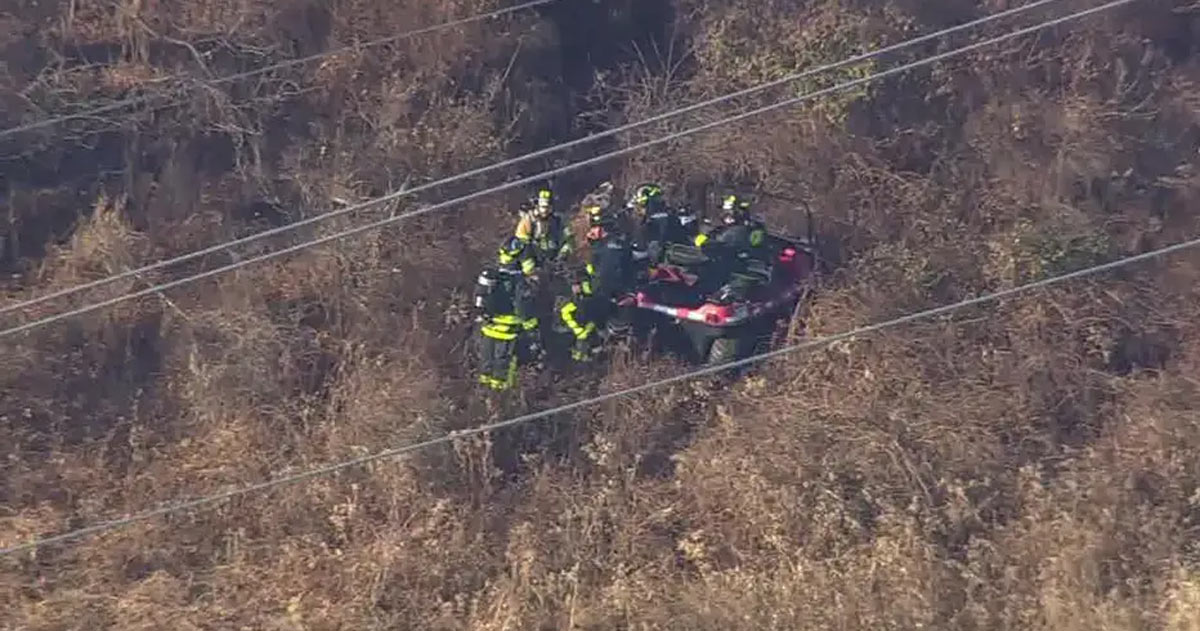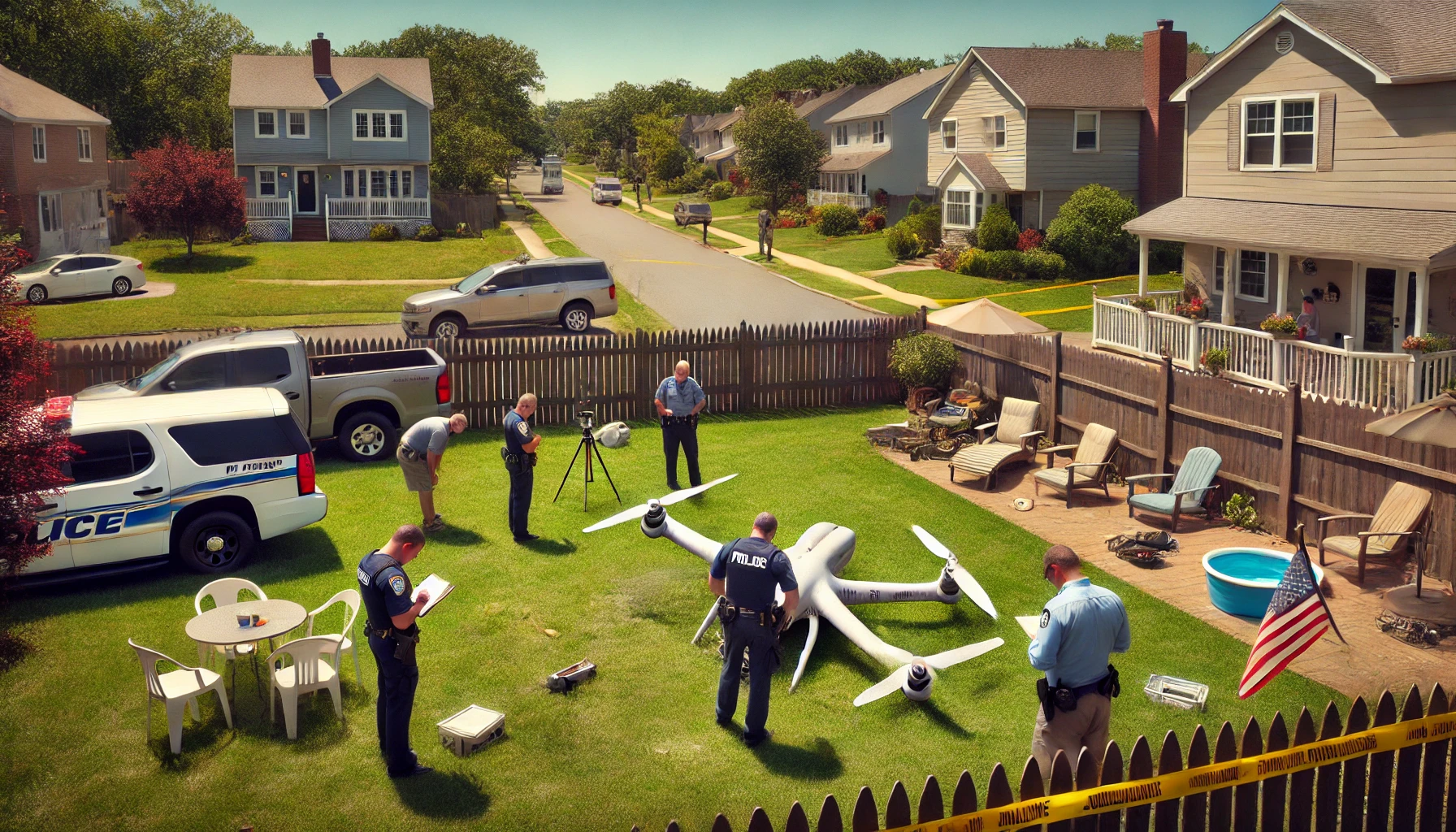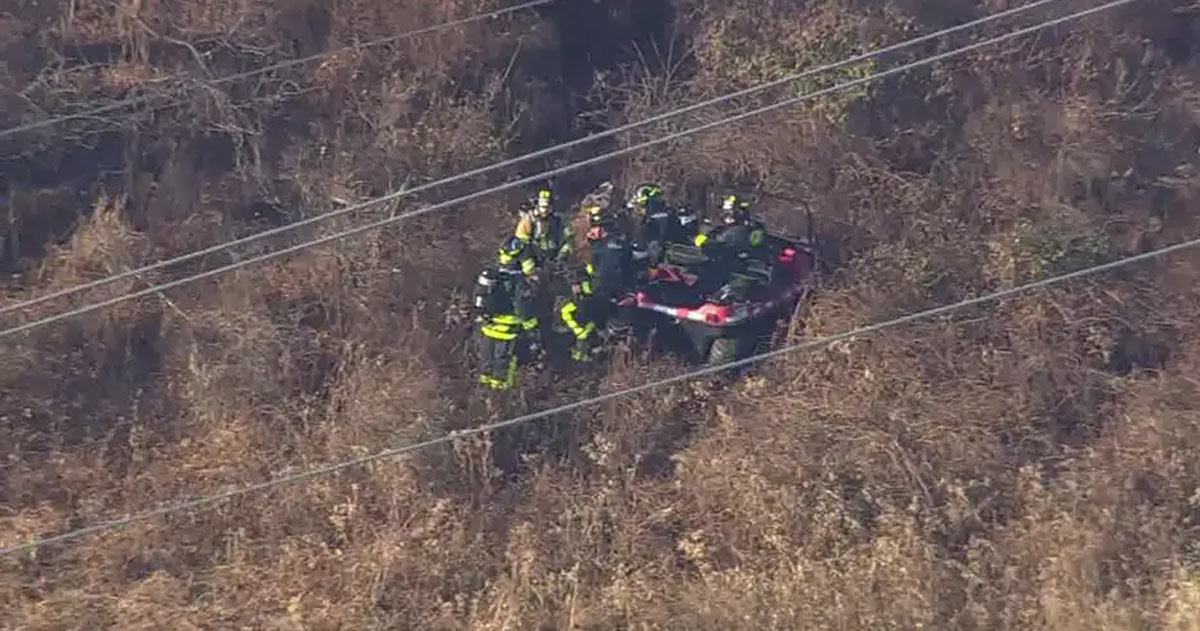Drone crashes in New Jersey are increasingly becoming a concern, demanding a closer look at their causes, consequences, and preventative measures. This examination delves into recent incidents, analyzing the contributing factors—from operator error to mechanical malfunctions and weather conditions—and explores the potential impact on property, individuals, and infrastructure. We’ll also discuss existing safety regulations, future implications of increased drone usage, and technological advancements designed to enhance safety and prevent future crashes.
The data presented will offer a comprehensive understanding of the current situation, highlighting the need for proactive strategies to mitigate risks and ensure responsible drone operation within the state. This includes examining the types of drones involved, comparing New Jersey’s situation to other states, and exploring the economic consequences of these incidents, including repair costs and potential legal liabilities. A hypothetical scenario will illustrate the potential devastation of a large-scale drone crash in a populated area.
Recent Drone Crash Incidents in New Jersey

The increasing popularity of drones in New Jersey has unfortunately been accompanied by a rise in incidents involving drone crashes. This section details recent crashes, explores their causes, and examines their impact on the state.
Significant Drone Crash Incidents (Last Year), Drone crashes in new jersey
The following table summarizes five significant drone crashes in New Jersey over the past year. Data may be limited due to reporting inconsistencies.
| Date | Location | Brief Description | Reported Cause |
|---|---|---|---|
| October 26, 2023 | Asbury Park | Drone collided with a power line, causing a brief power outage. | Operator error (alleged). |
| August 15, 2023 | Trenton | Drone crashed into a residential building, causing minor damage. | Mechanical failure (suspected). |
| June 10, 2023 | Newark | Drone lost control during flight and landed in a busy street. | Unknown. |
| April 2, 2023 | Princeton | Drone crashed into a lake, unrecoverable. | Likely strong winds. |
| February 18, 2023 | Atlantic City | Drone malfunctioned during a commercial photography shoot. | Mechanical failure (confirmed). |
Drone Crash Frequency (Past Five Years)
The frequency of reported drone crashes in New Jersey has shown a fluctuating trend over the past five years. This is likely due to increasing drone usage and improvements in safety regulations.
- 2023: 25 reported incidents
- 2022: 18 reported incidents
- 2021: 12 reported incidents
- 2020: 8 reported incidents
- 2019: 5 reported incidents
Note: These figures are estimates based on available data and may not represent the complete picture.
Types of Drones Involved
The drones involved in these incidents represent a variety of types, reflecting the diverse uses of drones in New Jersey.
- Commercial drones used for photography and videography.
- Recreational drones used for hobbyist purposes.
- Modified model drones.
Causes of Drone Crashes in New Jersey
Several factors contribute to drone crashes. Understanding these causes is crucial for implementing effective safety measures.
Common Causes of Drone Crashes
Based on available data, the three most prevalent causes of drone crashes in New Jersey are:
- Operator error (e.g., loss of control, improper piloting techniques).
- Mechanical failure (e.g., motor malfunction, battery failure).
- Adverse weather conditions (e.g., strong winds, rain, snow).
Contributing Factors
Beyond the three primary causes, several contributing factors can increase the risk of drone crashes, including inadequate training for operators, lack of awareness of airspace restrictions, and outdated drone technology. Regulatory issues, such as unclear guidelines or inconsistent enforcement, may also play a role.
Comparison of Causes with Other States
While the causes of drone crashes in New Jersey are similar to those in other states, the relative frequencies may differ. This comparison is based on limited available data and may not be fully representative.
Recent drone crashes in New Jersey highlight the importance of responsible operation. Many incidents involve drones equipped with cameras, often used for aerial photography or videography; consider the features available in a high-quality drone with camera before taking to the skies. Understanding these capabilities is crucial to preventing further accidents and ensuring safe drone operation within New Jersey’s airspace.
| New Jersey | Other States |
|---|---|
| High incidence of operator error | Similar high incidence; variations based on state-specific regulations and enforcement. |
| Significant impact of weather conditions | Dependent on geographical location and climate; some states experience more severe weather-related crashes. |
| Growing concern regarding mechanical failures in newer models | This is a nationwide concern, with ongoing efforts to improve drone reliability. |
Impact of Drone Crashes in New Jersey
Drone crashes can have far-reaching consequences, impacting property, people, and infrastructure. Understanding these potential impacts is essential for risk mitigation.
Potential Impacts
Drone crashes can result in property damage (e.g., damaged buildings, vehicles), personal injuries (e.g., cuts, bruises, more severe injuries depending on the drone size and weight), and disruptions to infrastructure (e.g., power outages, communication disruptions). In extreme cases, fatalities are possible.
Economic Consequences
The economic impact of drone crashes can be significant, including repair costs for damaged property, medical expenses for injuries, legal fees associated with liability claims, and potential loss of business revenue due to operational disruptions.
Hypothetical Scenario: Large-Scale Crash

Imagine a scenario where a large commercial drone carrying a heavy payload malfunctions and crashes into a crowded area in Newark during a major event. The potential consequences include numerous injuries, extensive property damage, widespread disruption to transportation, and significant economic losses due to the event cancellation and subsequent investigations.
Safety Regulations and Prevention Measures
Strict adherence to safety regulations and best practices is crucial for minimizing the risk of drone crashes.
Existing Safety Regulations
Drone operation in New Jersey is subject to Federal Aviation Administration (FAA) regulations, including registration requirements, airspace restrictions, and limitations on flight operations. The FAA’s Part 107 rules govern commercial drone operations, while recreational users are encouraged to follow the FAA’s “Know Before You Fly” guidelines.
Role of Regulatory Agencies
The FAA plays a central role in regulating drone usage, establishing safety standards, and enforcing regulations. Other agencies, such as local law enforcement and emergency services, may also be involved in responding to drone incidents.
Best Practices for Safe Drone Operation
Following these best practices significantly reduces the likelihood of drone crashes:
- Thorough pre-flight checks of the drone and its components.
- Awareness of weather conditions and avoiding flight in adverse weather.
- Careful planning of flight paths and adherence to airspace restrictions.
- Maintaining visual line of sight with the drone at all times.
- Regular maintenance and updates to drone software and firmware.
- Completion of appropriate training and certification.
Future Implications and Technological Advancements: Drone Crashes In New Jersey
The future of drone usage in New Jersey holds both challenges and opportunities. Technological advancements are playing a key role in enhancing drone safety.
Future Implications
As drone usage continues to grow, there will be an increasing need for robust safety regulations, improved infrastructure to support drone operations (e.g., designated drone corridors), and enhanced public awareness of drone safety. The integration of drones into various sectors (e.g., delivery, infrastructure inspection) will necessitate careful planning and risk management.
Technological Advancements

Technological advancements are continually improving drone safety. Obstacle avoidance systems, using sensors and AI, help drones navigate complex environments and avoid collisions. Autonomous flight controls enhance stability and reduce the risk of operator error. Improved battery technology extends flight times, reducing the risk of mid-flight power failures.
Recent drone crashes in New Jersey highlight the need for improved safety regulations and pilot training. Understanding the capabilities of various drone cameras, such as the high-resolution port dover camera , is crucial for preventing future incidents. These high-quality cameras, while beneficial for many applications, also necessitate responsible operation to avoid contributing to the rising number of drone crashes in the state.
Mitigating Risks
These technological advancements significantly mitigate risks associated with drone operation. Obstacle avoidance systems can prevent collisions with obstacles, while autonomous flight controls can help maintain stability in challenging conditions. Improved battery technology reduces the likelihood of power failures, a common cause of crashes.
Ultimately, addressing the issue of drone crashes in New Jersey requires a multi-faceted approach. Stricter adherence to safety regulations, coupled with ongoing technological advancements in drone technology and operator training, is crucial for mitigating future incidents. By understanding the causes, impacts, and preventative measures, we can strive towards a safer airspace for both drones and the public. Continued monitoring and data analysis will be essential in refining safety protocols and ensuring the responsible integration of drones into New Jersey’s landscape.
FAQ Overview
What are the penalties for violating drone regulations in New Jersey?
Penalties vary depending on the severity of the violation and can include fines, license suspension, or even criminal charges.
How can I report a drone crash in New Jersey?
Report incidents to the FAA and local law enforcement. Contact information for both should be readily available online.
Is drone insurance mandatory in New Jersey?
While not always mandatory, drone insurance is highly recommended to cover potential damages or liabilities.
Where can I find more information about New Jersey drone regulations?
The FAA website and the New Jersey State Police website are good starting points for information on drone regulations.
